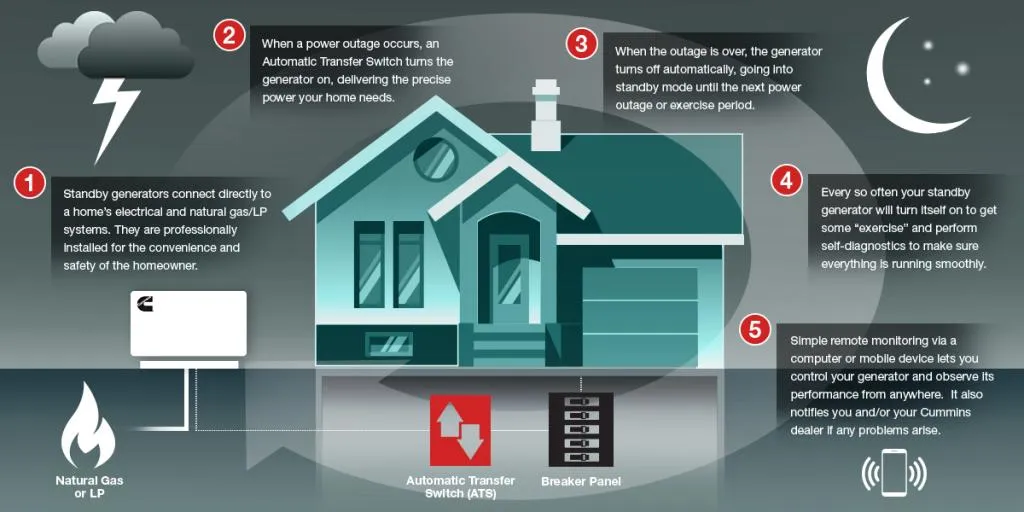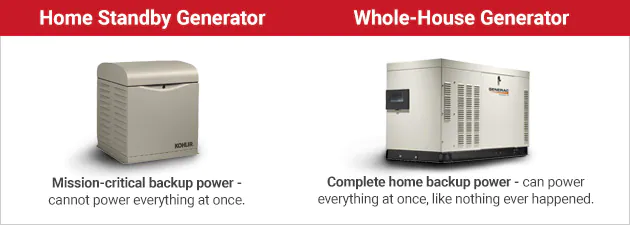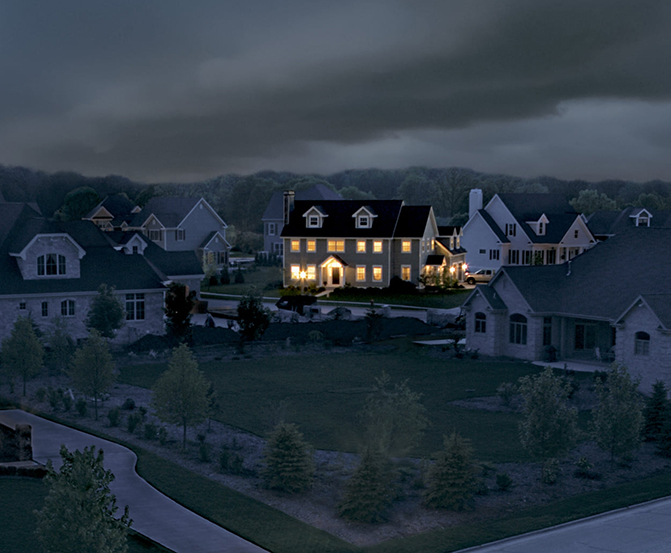What is the difference between a whole house and a standby generator: this article explores the answer to this question. Throughout this post, we provide you with a wide variety of details about these power generation devices, so you will be able to obtain all the generic information you need about buying or operating one.
Linquip’s website contains a lot of information about generators. No matter what situation you are in, we will be able to assist you with finding the right generator. To find out what Linquip can provide in terms of these industrial devices, read Linquip’s article “Generator: Working Principles, Function & Diagram“.
Have you ever worked with them? Linquip offers a wide selection of Generator Products to ensure that you can find the generator that suits your needs. Are there any special services you need related to your whole house or standby generator? Have you ever had a problem with your generator? Would you like to receive a guide? The Linquip platform allows you to find Generator Service Providers for free. The Linquip platform provides a cost-free quotation request service from available Generator Suppliers and Companies if you want to know the cost of a generator.
During a power outage, we are made acutely aware of the importance of electricity. Power outages have been steadily getting worse for decades now, and there are no signs that this trend will reverse. The reason is a combination of increasing violent weather and aging infrastructure. It’s best to keep your home running by using a generator during a blackout. However, in almost all cases, choosing the appropriate tool is crucial. You should also consider your budget when selecting a solution.
There are a variety of options when it comes to backup generators: whole house generators, standby generators, or even portable generators, according to how you want to prepare your home in the event of an outage.

Basics of Backup Generators
Electricity is unavailable to approximately 940 million people. As those of us who have this privilege, we often take it for granted. The power outages leave people feeling powerless.
There’s no reason you have to go without electricity, even if you can tolerate it for a few days. If you lose access to your appliances for too long, you could rack up huge expenses, and in an emergency, it is possible that you won’t be able to communicate.
If your power goes out, you can avoid discomfort, household damage, and unexpected expenses by investing in a backup generator. Keeping the essentials running will be easy with a whole-home standby generator.
In the event of power outages and blackouts, a backup generator keeps your home or business running. Installing a standby generator outside your home or business will automatically start it when you lose power, regardless of whether you’re at home or away, in merely a few seconds.
To provide your home with power in an emergency, you can choose between three types of generators, as mentioned earlier. You should, however, leave portable generators off your shortlist if you are looking for a backup generator solution that will keep your lights on in case of an unexpected power outage. We should instead compare the benefits of residential solutions that are more optimal.
Comparison between Whole House Generator and Standby Generator
Your application’s load requirements will determine what type of generator you need. Taking a closer look at each type will help you understand their differences better.
Whole-house generators are standby generators that are large enough to supply power to an entire household, producing from 22 to 40 kW. Additionally, they operate on natural gas or propane, and they automatically switch on when the power goes out.
You cannot choose the perfect generator based on a one-size-fits-all approach. When there is an outage, a small generator will not be able to keep the appliances and systems you need working. Oversized generators waste fuel and increase your carbon footprint unnecessarily.
Consider a power outage that lasts several days to gain a better understanding of your unique power needs. The priority you should do is to address your basic energy needs, such as water, septic, and lighting. After that, take into consideration any add-ons that will increase your power requirements. Have you considered the possibility of using a furnace or air conditioner that requires a lot of power? When the electricity goes out, must you run the electric dryer and clothes washer simultaneously? Is oven baking required? Are there any medical devices that must continue functioning during a power outage?
A certain amount of energy will be attached to each of these appliances. Add all these together, and you’ll get a rough estimate of the size you’ll need.

Standby generators and whole-house generators can be compared based on the following items:
- As opposed to a lawnmower-style engine that is used in a home standby generator, whole-house generators have a high-quality automotive-style engine.
- As a result of their larger size compared to standby generators, whole-house generators use liquid-cooled systems instead of air-cooled ones to handle extended outages.
- A whole-house generator has a lower RPM and produces less noise than a standby generator.
- Another advantage of Whole house generators over standby generators is longer maintenance intervals.
- Load management and air conditioning shedding options are available on whole-house generators.
- Instead of backing up only essential circuits that standby generators cover, whole-house generators are capable of supplying power for the entire house.
- The fuel efficiency of whole-house generators is higher than that of standby generators.
Standby Generator
For small to medium-sized homes, standard home standby generators are the best choice due to their low price, ease of installation, and serviceability.
Your electrical loads will barely be affected by a power outage if you manage them wisely. However, a common mistake is that the standby can provide power to the entire house regardless of the amount of power used.
Smaller, air-cooled engines provide short-term power to items such as air conditioners, sump pumps, refrigerators, and some lighting, but they aren’t well suited to power everything at once, back up larger homes, or run for long periods.
The air-cooling systems produce between 8 and 22 kilowatts of power, which is enough to run most essentials, and a small central air conditioner, but you’ll need to be careful about how much power you use. Choose models with service-rated automatic transfer switches to give you the convenience of restoring power to the entire panel and reducing energy consumption using what’s called “A/C Shedding.”
Whenever there is an interruption in power, a standby generator automatically activates. They usually run on propane or natural gas and are installed outside your home. The generator can be hooked up to your main electrical box so that it can power your essentials.

Whole House Generators
In reality, the term “whole house” is very dependent on your home’s size. Invest in a whole-house generator if you want the best backup power protection!
Compared to standby generators, whole-house generators offer many advantages. With these engines, you can enjoy longer run times with less maintenance, better power management, more intelligent load management, and a variety of fuel options such as natural gas, liquid propane, and diesel.
It will only take a few weeks for you to wonder why you didn’t buy a whole house generator sooner.
The capacity of whole-house generators can range from 22 to 48 kW. Adding power keeps you stress-free because you won’t have to decide between running a single air conditioner or a large commercial refrigerator due to a lack of power. You will be able to operate your house as if nothing had happened.
Whole house generators operate similarly to standby generators: they are mounted outside, wired into the house’s electrical system, and supplied with a fuel line. The principal difference between a whole-house generator and a standard standby generator is its size, as a whole-house generator will provide your entire home with electricity during a power outage.
Comparison between Air-Cooled and Liquid-Cooled Generators
Air-cooled engines are designed to use cooler air from the outside to keep them from overheating. In addition to lawnmowers and portable generators, most home standby generators are powered by these engines.
The basic design of a liquid-cooled engine is like that of an automobile engine in that it circulates liquid coolant throughout the engine, dissipating heat through a radiator. The liquid-cooled generator is, therefore, more durable and powerful and will run for a longer period. A liquid-cooled generator produces electricity up to 150 kilowatts, making it an excellent choice for commercial and whole-house applications. They are quiet for their size.
Commercial Generators
High-performance, rugged equipment with exacting specifications is critical to commercial operations. A liquid-cooled generator with long run times is the only type of generator that can meet the strength and endurance requirements of most commercial applications.
These giant liquid-cooled generators are not intended to power residential homes; their purpose is to power industrial parks and manufacturing centers, which require large amounts of electricity to operate. The wattage and voltage requirements of their final destination determine the size and type of commercial standby generator.
Benefits of Installing a Whole House Generator
Whole house generators offer the following advantages:
Safety and Security
As whole-house standby generators emit no fumes, they prevent the buildup of carbon monoxide inside your home. Additionally, they provide lighting during blackouts, which will prevent accidents related to trips and falls.
Efficiency
A whole house standby generator connects to an existing gas line, so it can provide any amount of power it needs for as long as necessary, as opposed to portable generators, which need to be refueled every few hours.
Easy-To-Use
When there is a blackout or a power outage, standby generators automatically turn on, providing power to essential appliances such as air conditioners, water heaters, refrigerators, freezers, and washing machines.
Money-Saving
By setting up a whole-house generator, you can keep food in the refrigerator from spoiling or pipes from freezing, which can cause unexpected costs and headaches. You would realize a positive return on your investment if you experienced several power outages over the next ten years, for example.

Disadvantages of Installing a Whole House Generator
Whole house generators have the following drawbacks:
- The cost of fuel can be high if power outages occur frequently, and they are expensive to buy and install.
- You should hire a professional for installation and maintenance.
- People who are not homeowners may not be attracted to these items because they are permanently installed fixtures on the property.
- Noise complaints may be received from neighbors as a result.
- They are more space-consuming than portable generators.
- The fuel tank may be unsightly due to its size.
Download Whole House Generator vs. Standby Generator PDF
There is an option below to download the article as a PDF document for users who are interested in saving this content for future reading or reference.
Buy Equipment or Ask for a Service
By using Linquip RFQ Service, you can expect to receive quotations from various suppliers across multiple industries and regions.
Click Here to Request a Quotation From Suppliers and Service Providers
Read More on Linquip
- Portable vs. Standby Generator (Best Choose for Home): A Complete Guide
- The 8 Best Standby Generator of 2022
- What is the Right Size Generator for a 50 Amp RV? A Complete Guide
- Can I install a Standby Generator Myself? (An All-In-One Guide)
- The Difference Between Prime & Standby Generators: A Comprehensive Guide
- How Long Can A Standby Generator Run Continuously? A Comprehensive Guide
- What is Generator Efficiency? Calculation & Formula Guide
- What is an Induction Generator? An Ultimate Guide
- What are the parts of AC Generators?
- What are The Electric Generator Parts?
- What Is a Generator? A Comprehensive Explanation of Working Principles, Types, and Components
- What is the Working Principle of a DC Generator?
- The Difference Between Generator and Inverter: All You Need to Know
- Differences Between Motor and Generator
- Difference between single-phase and three-phase generators: An ultimate guide
- Difference between AC and DC generators: An easy-to-understand guide
- The 7 Best Whole House Generators in 2022



